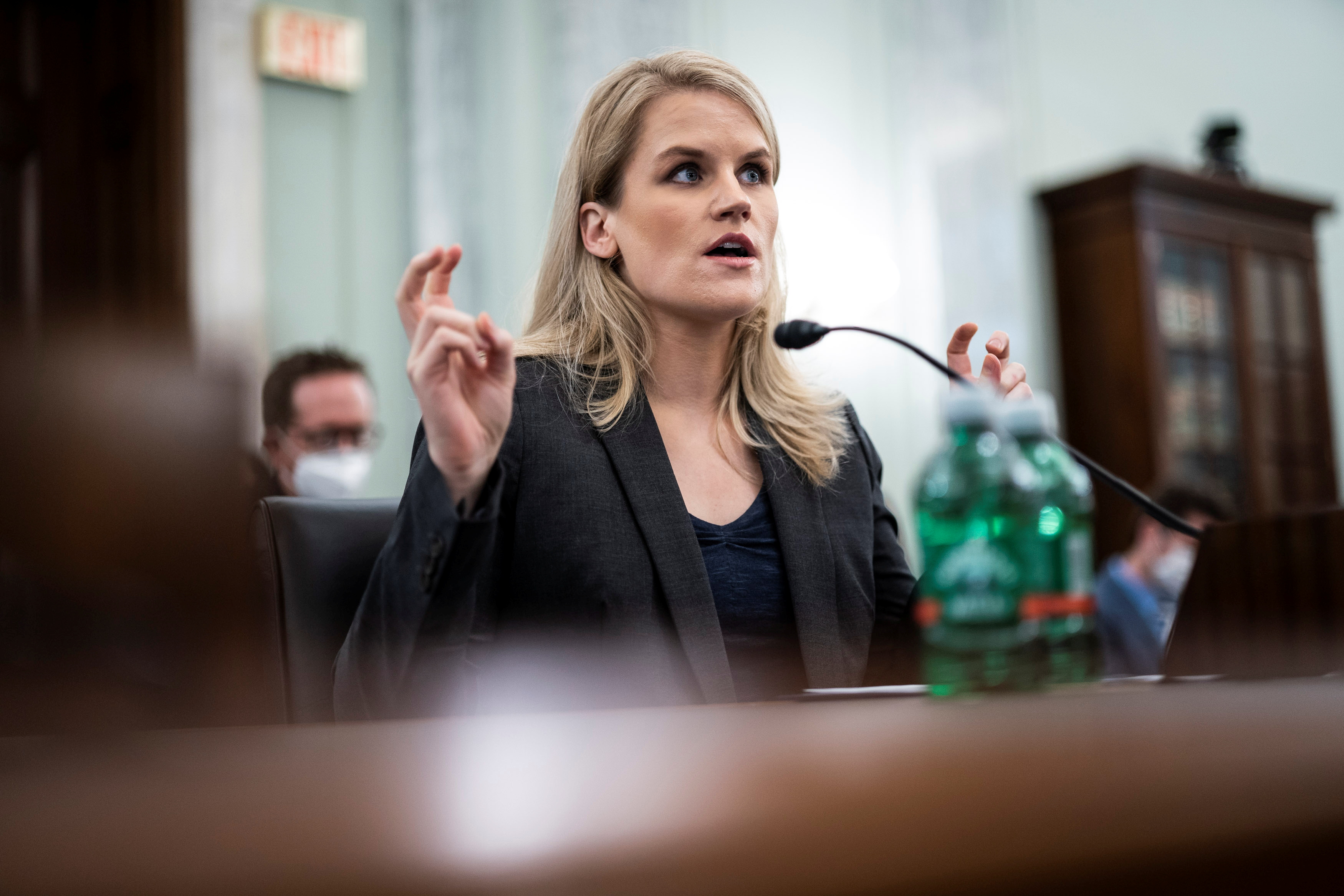Hours before the almost 7-hour Facebook outage took place, whistleblower and former Facebook employee, Frances Haugen revealed her identity and addressed that the social media giant went ahead with misinformation despite being aware of it.
HIGHLIGHTS
- Facebook faced an outage of over 6 hours on Monday evening.
- This happened after whistleblower and former Facebook employee Frances Haugen, revealed her identity on air.
- Haugen noted that Facebook would not change its problematic algorithm as people would spend less time on the platform.
Hours before Facebook’s almost 7-hour long outage, the social media platform had hit the headlines as a former employee and whistleblower had revealed her identity and gone on air to speak about everything that is wrong with the social media giant.
Haugen had presented internal documents that went to Congress, the Securities and Exchange Commission, and The Wall Street Journal. She decided to reveal her identity and noted that Facebook realized that if they change the algorithm to be safer, people will spend less time on the site, and will click on fewer ads, making less money. “I’ve seen a bunch of social networks and it was substantially worse at Facebook than what I had seen before. Facebook, over and over again, has shown it chooses profit over safety,” Haugen told.
It was Haugen who presented papers and information on Instagram being harmful for teenager’s mental health. Speaking about algorithms, Haugen told The Journal that in human interactions, people eventually move on from a topic, but algorithms don’t, which is harmful for teenagers, “And that's part of the danger for like teenagers, right? Part of the reason why these teen girls are getting eating disorders is they one time look up weight loss and the algorithms like, ‘Oh great. We'll keep showing you more and more extreme weight loss things.’" Haugen told the Journal, “The thing I want everyone to know is that Facebook is far, far more dangerous than anyone knows, and it is getting worse. We can't expect it to fix itself on its own.”
She noted that Facebook was taking internal actions that did not match its public statements. “Facebook has publicized its work to combat misinformation and violent extremism relating to the 2020 election and insurrection. In reality, Facebook knew its algorithms and platforms promoted this type of harmful content, and it failed to deploy internally recommended or lasting countermeasures,” she wrote in a cover letter to the SEC. The site allows divisive content because it promotes engagement, she told. “Its own research is showing that content that is hateful, that is divisive, that is polarizing, it’s easier to inspire people to anger than it is to other emotions,” Haugen said.
Here's a short 5 min overview from The Verge
Haugen further noted that she had empathy for Facebook CEO Mark Zuckerberg. "And Mark has never set out to make a hateful platform. But he has allowed choices to be made where the side effects of those choices are that hateful, polarizing content gets more distribution and more reach," she said.
Shortly after Haugen went live, Facebook and sister companies Instagram and WhatsApp underwent almost a 7-hour long outage. It took over six hours for Facebook to resolve the issue that the company claimed arose due to a “faulty configuration change”. This was one of the longest outages Facebook and its services like WhatsApp faced.
At the end of the hearing, lawmakers appeared eager to act and determined to pass legislation addressing the harms Facebook’s algorithms can cause.
“Here’s my message for Mark Zuckerberg: Your time of invading our privacy, promoting toxic content, and preying on children and teens is over,” Sen. Ed Markey (D-MA) said at Tuesday’s hearing. “Congress will be taking action. You can work with us or not work with us, but we will not allow your company to harm our children and our families and our democracies any longer.”





Comments
Post a Comment